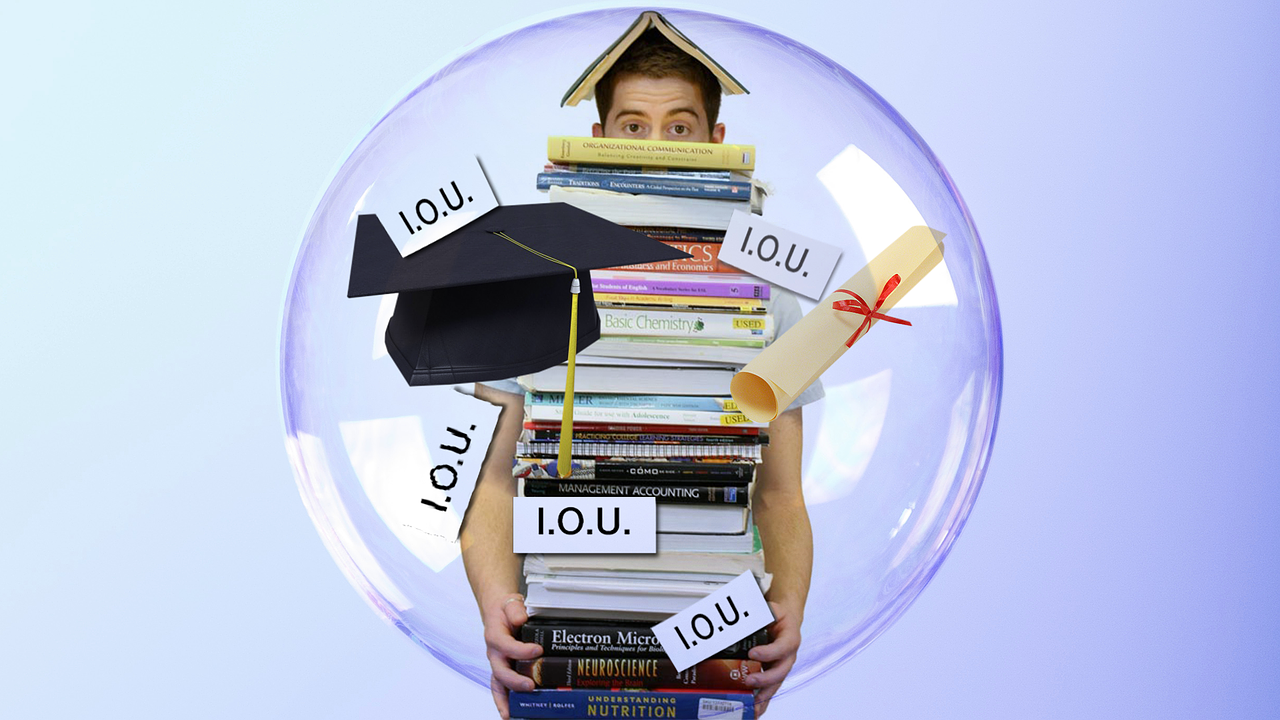People stress out about all sorts of things. Money is a common stressor. Student loans, well, the stress of paying those back, especially for recent graduates, can take a psychological and physical toll.
If you find yourself in the position of needing to report student loan debt, keep this in mind. And consider passing along the tips at the end of the article to help those who owe you get back on track.
In a recent survey by Student Loan Hero, over 1,000 borrowers reported experiencing the following because of their student loan debt: insomnia, anxiety, social isolation, headaches and more.
Student Loans: Stress and Its Effects
It’s tough, and for most people, there’s no way around it. To get into a career that pays well, you end up starting off with tens of thousands owed in the form of student loans. If the end goal is financial security, it’s no wonder 61% of the survey respondents worry that their student loan debts were out of control.
Let’s break it down further. Those who responded to the survey reported suffering the following psychological and physical symptoms:
- Social isolation – 74%
- Headaches – 72%
- Sleepless nights – 65%
- Muscle tension – 56%
- Apprehension or dread – 55%
- Irritability – 55%
- Restlessness – 53%
- Depression 52%
- Tenseness – 51%
- Nausea – 50%
- Jumpiness – 21%
Combined, these stress factors can seep into all aspects of your life, leaving you less productive at work, feeling more isolated, unhappy and helpless. If you’ve ever felt this way because of student loans, here are some tips to help you get back on track.
1) Explore Your Student Loan Repayment Options
If your payments are pushing your budgetary limits every month, you do have some options:
Income-Driven Repayment Plan
For your federal student loans, the Department of Education offers several different income-driven repayment plans that can help reduce your payments to 10-20% of your monthly discretionary income. They can extend your repayment term up to 25 years, which will cost you more in interest, but give you some short-term relief.
Private student loans don’t qualify for the same help as federal loans. Your lender may have other options available to help you get through financial hardship.
Refinancing
You may be able to refinance federal or private student loans to get a lower payment, reduce the interest rate, or both.
There are companies that specialize in student loan refinancing. They may be able to offer lo variable or fixed interest rates. You may or may not qualify for those. Even if you don’t, lenders may also offer some flexibility in your monthly payments.
By way of example: let’s say you have $30,000 in student loans with a payment term of 10 years and an APR of 6%. Your monthly payment would amount to $333. Now, you could refinance at 4% APR, for the same length of time and reduce your payment to $304. That would save you $29 a month. Not a lot, but every little bit counts.
Alternatively, let’s say you are able to extend the terms to 15 years, but the interest rate stays the same. Your payment would go down to $253. In the short term, that’s a significant savings. Keep in mind you would be paying more in interest over the term of the loan. Once you’re back on track, you could try refinancing again…
2) Getting Your Finances In Order
It’s bad enough having to face a growing pile of student loan payments. Unfortunately, that’s often only the tip of the iceberg. You may have other bills, other late payments or delinquent accounts. Those can all affect your credit report, and your credit score can take a hit. If you’re at this point, you may need to find ways to increase your income or decrease your expenses, which is a nice way of saying cut back on some things, or even cut them out.
Create a budget. Review the last 3-4 months of bank statements. Put the information into a spreadsheet, or personal finance software. See if you can identify expenses you can reduce like entertainment, eating out, extra cable channels, etc. Average out your monthly expenses and income. Set some goals so that you have money left over to pay down some bills or debt, maybe even those student loans.
If things are really tough, you may want to try a credit repair company. They may be able to make calls on your behalf to reduce interest rates and/or consolidate payments. Keep in mind, you can do that yourself too.
3) Get Help If Necessary
Last but not least, maybe you need to enlist the help of a pro. A financial therapist can help you put your student debt and other bills into perspective. They can offer up healthy ways for you to cope with your financial issues…and your student loans.
For your own peace of mind, come up with a plan. These tips will help you start, but the work of planning, setting goals, saving, and paying down your debt is up to you.

Speak Your Mind